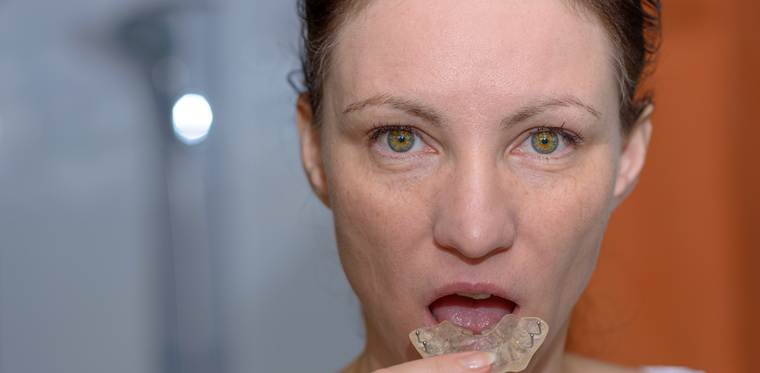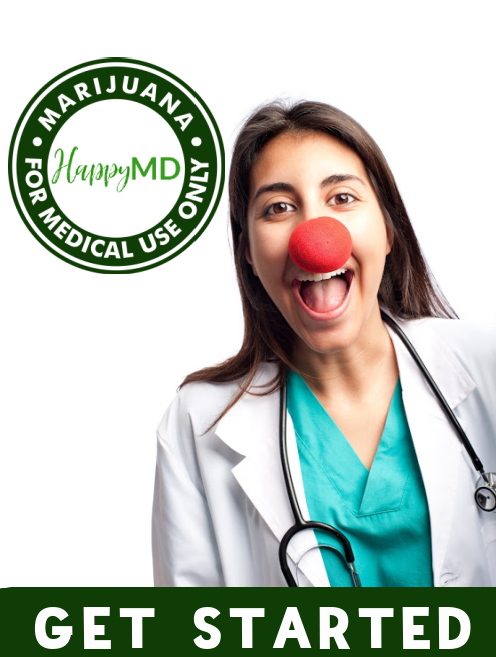
Is The Use Of Cannabis The Reason You Are Grinding Your Teeth?
Over the years, many laws have been amended, and marijuana is legal in most states. For this reason, more and more people are willing to try it. There are many ways of consuming cannabis, including smoking, vaping, eating, applying, and even dabbing on the skin. Depending on your method of consumption, marijuana could have many effects on your oral health. In this article, we want to know if it actually causes bruxism.
Bruxism is used to describe clenching of the jaw or grinding of teeth. Clenching is when the top and bottom teeth press tightly together, while grinding is when the teeth move on each other, either back and front or horizontally. Bruxism isn't a dangerous condition, but it can lead to tooth pain or sensitivity, ear pain, jaw pain, and headaches. Teeth grinding can flatten, fracture or chip the teeth, resulting in permanent damage. This condition affects every one person in ten people. Teeth should only touch briefly when one is chewing or swallowing. They should not touch as constant contact could lead to dental problems at all other times.
A lot of research has been done, and there is very little evidence to show that marijuana use causes bruxism. Contrary to that, it has been discovered and backed with enough evidence that marijuana can treat teeth grinding.
So, What Causes Teeth Grinding?
It's natural to clench and grind teeth when one is eating. However, some people keep clenching and grinding their teeth subconsciously and in excess during the day, night, or both. Different people have different grinding patterns, and some grind their teeth when they are awake while others grind when asleep. When one grinds teeth when awake, it happens subconsciously and often happens when one is stressed, angry, or trying to concentrate. If one grinds their teeth when sleeping, it's dangerous and more difficult to control.
Although doctors are not sure what actually causes bruxism, they have concluded that it's triggered by a combination of different factors, including psychological, physical, and genetic. Stress has, however, been identified as the main trigger. People with high-stress levels are most likely to develop bruxism. Some medical conditions and treatments can increase a person's chance of developing bruxism. If some family members have it, one is also more likely to develop the same.
It's important to note that not everyone who grinds and clenches their teeth suffers from the symptoms. Although the cause isn't exactly known, a few factors shown below could make the chances of developing it higher. They include:
Ø The alignment of a person's teeth
Ø Whether one is able to relax
Ø A person's posture
Ø The amount of stress that one has
Ø A person's diet
Ø Use of anti-depressants and anti-psychotics
Ø Neurological disorders
Ø Various diseases like dementia and epilepsy
Present-Day Treatments for Bruxism and Their Reactions
Teeth grinding isn't a dangerous condition, but its symptoms can be very uncomfortable. These include migraines, jaw pain, a sore neck, oral problems, and enlarged jaw muscles.
Dentists recommend various treatments for bruxism depending on severity. These may be such as:
· Dental corrections- if your teeth have been affected to a point where they make it difficult to chew due to sensitivity, your dentist may perform some teeth correction procedures such as the use of crowns in an attempt to repair the damage

· Mouthguards and splints- they are put on top of your lower and upper teeth to stop your teeth from damage that could be caused by grinding and clenching
· Botox injection- this helps reduce pain and relax your jaw muscles by paralyzing them. Side effects can be dizziness, swelling, stiffness of muscle, and even bleeding.
· Antidepressants- these will help regulate your emotions, making you grind and clench your teeth. They can make you feel nauseated, have insomnia, gain weight or suffer from fatigue.
· Muscle relaxants- these are usually prescribed to those who grind in their sleep. Taken before bed, they help relax jaw muscles. They can make you have blurred vision, dizziness, constipation, and diarrhea.
Using Cannabis to Prevent Grinding Of Teeth
Weed can help treat the symptoms of bruxism without the feared side effects. This is because it has the following qualities: anti-depressant, anti-anxiety, anti-stress, muscle relaxant and can also help correct sleep disorders. Cannabinoids, which are a main component of marijuana, when used in low doses, can reduce motor activity. This means that the affected can control their jaws again and, therefore, control bruxism.
Below we explain in depth how marijuana may help those having bruxism.
· Anxiety, which is the main cause of awake bruxism, can be corrected using marijuana. This is because the cannabinoids found in marijuana have anti-anxiety effects. Patients who grind and clench when stressed can manage their tension using marijuana.
· Depression can be managed using cannabis. A study has shown that CBD has the same effects as commonly used anti-depressants. It enhances the mood and can help those that grind and clench due to stress.
· Marijuana has been proven to relieve all types of chronic pain by controlling the pain receptors in the brain. This does not exclude the jaw pain that could be caused by constant grinding and clenching of teeth.
· CBD, which is a component of marijuana, is a muscle relaxant. When used, it can help relax facial muscles and can therefore make them less tense and prevent conditions such as jaw locking or dislocation.
· Sleep bruxism is combined with other sleeping disorders. Bruxism can further cause sleep disturbance. Marijuana has been proven to cause sleep faster and help a person sleep for longer. Using cannabis will therefore improve sleep quality, even in people who have bruxism.

The Link between Marijuana and Teeth Grinding
Although marijuana has many different effects on different people, there is no proof that it clearly causes the grinding and clenching of teeth, known as bruxism. Contrary to that, there is evidence that it can be used to prevent and alleviate the effects of bruxism.
Teeth grinding is not dangerous but can have adverse effects on your health. If you suffer from bruxism, it's recommended that you consult a specialist.


.png)